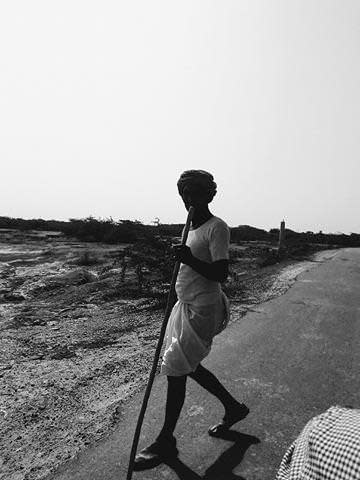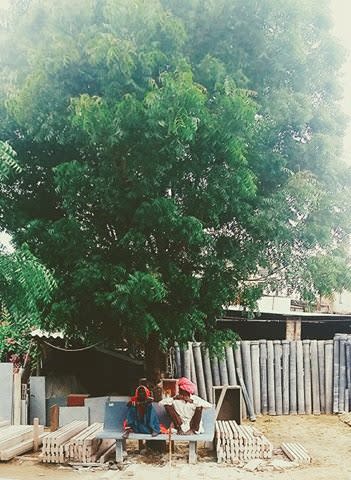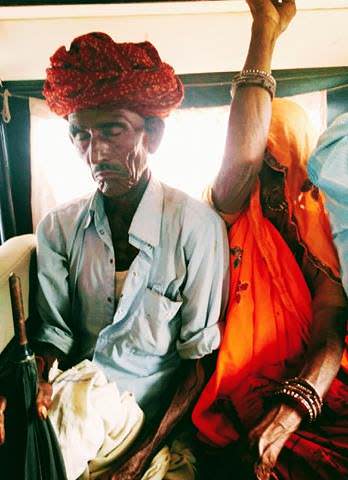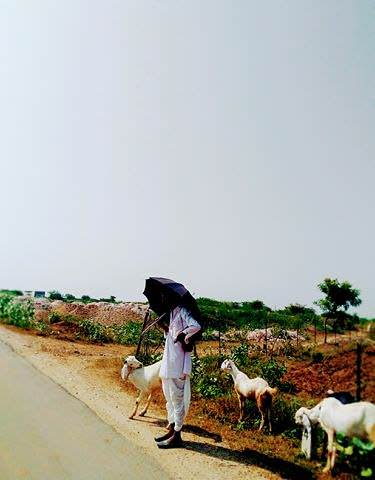You never really know how much you’re surrounded and consumed by Western values and manners and until you’ve visited a village and stayed. You never really know how much your education system is rooted in its past of colonization, how contingent it is on its reality of globalization until you’ve visited a village and stayed. You never really know how alien you are, in your own country until you have been stared at, in awe because of even the most common of your city mannerisms. The realities in India are different, not just from the rest of the world but far apart even from each other, given to the vast disparity in distribution of wealth, enormous cultural diversity and of course illiteracy.

The village teaches you more about yourself, than it does about itself. The lessons include much more than squatting to relieve one self, to like and appreciate local tastes although only eventually, to be patient with transport (personal or public), to not rely on ‘apps’ for anything and everything because the word ‘online’ is something unheard of in the countryside. To accept that facilities or rather luxuries that are a ‘necessity’ in the city, don’t even exist here.


You will come to believe and realize in the true power of word of mouth, because that’s the only source of communication available and possible. You will see so much of the sky, limitless blue sky stretching across your vision. You will struggle to see time, not as a physical entity which should be valued and saved (according to city orientation), rather, see it as an emotional resource. You see gender roles being held close to rigidity of the patriarchal setup and subsequently being challenged to their very core. It’s a place with so many contrasts and so many synchronizations. It’s a place not very different from the city, like its younger crude sibling bit less pretty without the lights and the order, but much more humane.

Only and only when you overcome these eccentricities of the village would you take a leap of faith and start seeing the brighter side. The warmth of the people when they ask you about lunch, the innocence of a child in their eyes when they hear the tales of the big bad city from you, the faith they put in each other or their daily rituals and how much more determined and passionate they are about life, the lack of psychological play and politics will surprise you and that’s just the tip of the iceberg.

One question that always comes up while having any conversation on the field and irks a city dweller like me the most, is of ‘Jaat’ or caste. A person from any particular village is bound to ask your ‘Jaat’ as naturally as we ask where one works in the city. They are trying to place you, and usually burst into laughter when they see a clueless face. They can’t imagine a place with no caste distinctions;
A place where you and I have lived for as long as we can remember.
A place where you and I have lived for as long as we can remember.

One day, while conversing with one of my colleague who happens to be a proud ‘authentic’ Rajpoot, I brought up the topic, and he was offended already.
“We are the real Rajpoots, there’s a lot of inter marriages that go on now, but we strive to marry only in pure bread lineages.”Nodding, I ask him “And what would that insure?” to which he replies “Cities don’t have Jaatiwaad system, but here we rigidly abide by it because how else would you ensure a hierarchy of order?”
I gently ask him, “So you’re saying you’re superior in some way?” he agitates but maintains his cool. “No!” he’s annoyed at my lack of satisfaction to his argument, “It ensures the diversity and brings order in the society, there are around 10-15 different Jaatis in Rajpoots themselves” and begins to count on his fingers, all prepped up to blow my mind.
He staggers for a moment at the 8th, trying to remember something and I instantaneously blurted saying “Wouldn’t it be easier if they were all just people.” He glared at me for a whole minute.
 We merrily dwell in the cities untarnished by the torments of this horrific system that has a death grip on our people and their minds. There is a real problem here, which needs our utmost attention and efforts as the educated youth which drives the nation, not towards becoming yet another first world nation driven by ruthless capitalism and so called “development”, rather becoming the first Caste-free India. An India, not bogged down by social assaults like Jaati Waad(casteism).
We merrily dwell in the cities untarnished by the torments of this horrific system that has a death grip on our people and their minds. There is a real problem here, which needs our utmost attention and efforts as the educated youth which drives the nation, not towards becoming yet another first world nation driven by ruthless capitalism and so called “development”, rather becoming the first Caste-free India. An India, not bogged down by social assaults like Jaati Waad(casteism). 







